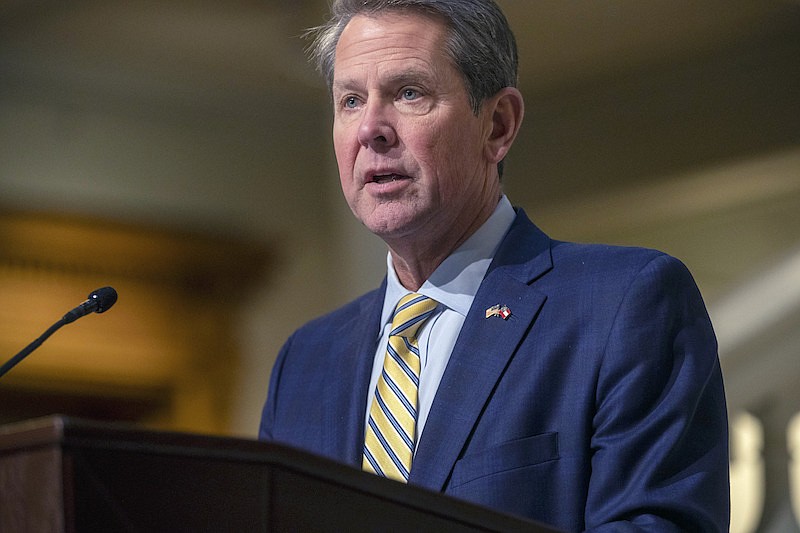ATLANTA (AP) - State-funded prekindergarten and child care teachers in Georgia will get $1,000 bonuses alongside K-12 teachers, thanks to a big increase in federal coronavirus aid.
Georgia's Department of Early Care and Learning Commissioner Amy Jacobs told The Associated Press Wednesday in an exclusive interview that her department would use about $65 million of the most recent round of federal coronavirus funding for the one-time bonuses.
"We're thrilled to be able to provide these payments," Jacobs said in a phone interview.
Gov. Brian Kemp and state Superintendent Richard Woods announced earlier this month that they would use coronavirus relief to provide the bonus payments to K-12 teachers. But that left out prekindergarten teachers who usually teach alongside them in the same schools.
"I found out Pre-K was not included and I was like 'Why was that?'" said Amber Jameson, a prekindergarten teacher at DeKalb County's Peachcrest Elementary. "We work just as hard as the teachers in the public schools anywhere."
In addition to the roughly 3,800 prekindergarten teachers and assistant teachers in Georgia's public schools getting the bonuses, an equal number of prekindergarten teachers and assistants in private schools will get the money. A much larger number of teachers of children between birth and three years old are eligible - the department can't say how many because their private employers must apply for the money.
The state has already been using coronavirus aid to support private child care providers, but got a much larger amount for child care in the most recent round of funding, about $400 million. Jacobs said that will enable the state to continue to subsidize child care providers, which face increased costs and decreased enrollments, while also giving teachers a bonus.
"We've done a lot with our previous dollars to go directly to our childcare programs to stabilize their businesses, but we realize the workforce is an important part of the business," Jacobs said.
Jacobs said teachers are likely to get the money in February or March. Prekindergarten teachers with a bachelor's degree in Georgia have starting salaries above $35,000, but assistant teachers and those who care for younger children make much less, averaging $9 an hour, Jacobs said. For them especially, the $1,000 bump will make a big difference.
"They are frontline workers and are putting themselves at risk if they're teaching face-to-face and interacting other people," said Blythe Robinson, president and CEO of Sheltering Arms, which operates 13 child care centers. "I think supporting our teachers in that way is important. They deserve it."
The nonprofit group has about 400 teachers in its locations across five metro Atlanta counties. Robinson said Sheltering Arms has been using the federal aid passed through DECAL to pay its teachers. She said some teachers had left because of the COVID-19 pandemic, either because they didn't want to risk exposure, or because they have to care for their own children at home without in-person school.
The move also will be a money-saver for many public school districts, which were preparing to make $1,000 payments to their prekindergarten teachers when other teachers got bonuses. Districts already get less to support a prekindergarten teacher and classroom from DECAL than the state funding formula gives for a kindergarten teacher.
"We pay them just like we pay every other teacher," said Bronwyn Ragan-Martin, superintendent in southwest Georgia's Early County. The 1,800-student district has four prekindergarten classrooms, each with a teacher and assistant.
"Those early literacy and numeracy skills are so critical," Ragan-Martin said. "Zero to five are critical ages in laying the foundation for kids."
Teacher groups had been lobbying Kemp to include the additional educators.
"We strongly believe that Pre-K teachers should receive the supplement as well," said Claire Suggs, senior legislative policy analyst for the Professional Association of Georgia Educators, the state's largest teachers' group.
Those complaints reached Jacobs and Kemp, who put together the plan in recent days.
"Throughout the pandemic, we have remained laser-focused on ensuring that parents can return to work safely with the knowledge that their children are well taken care of," Kemp said in a statement.
